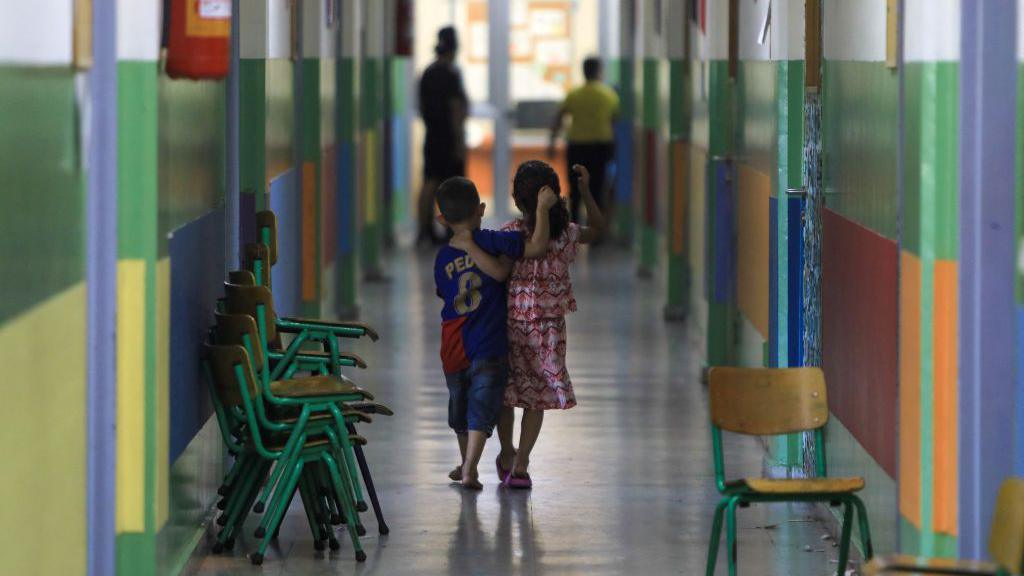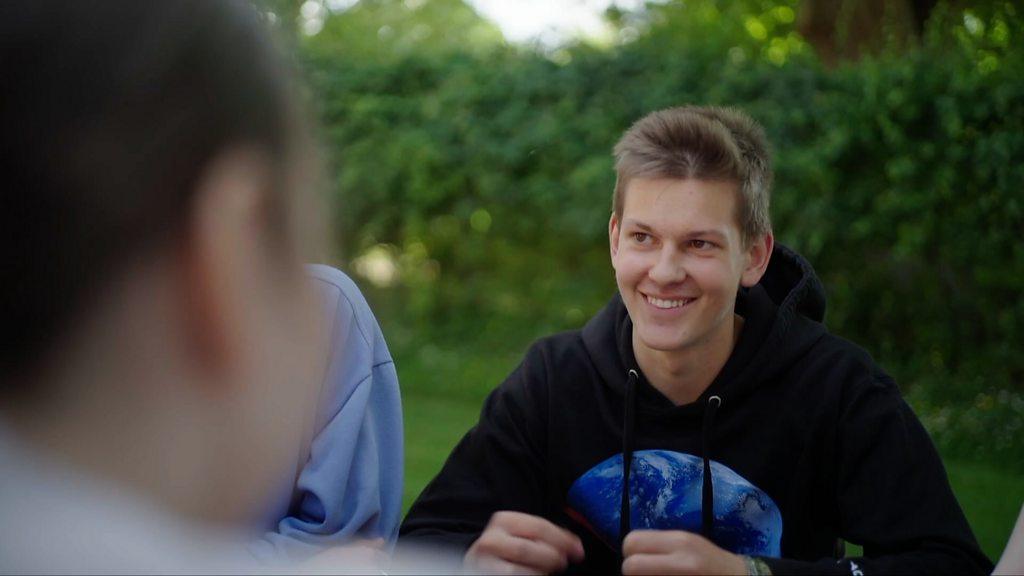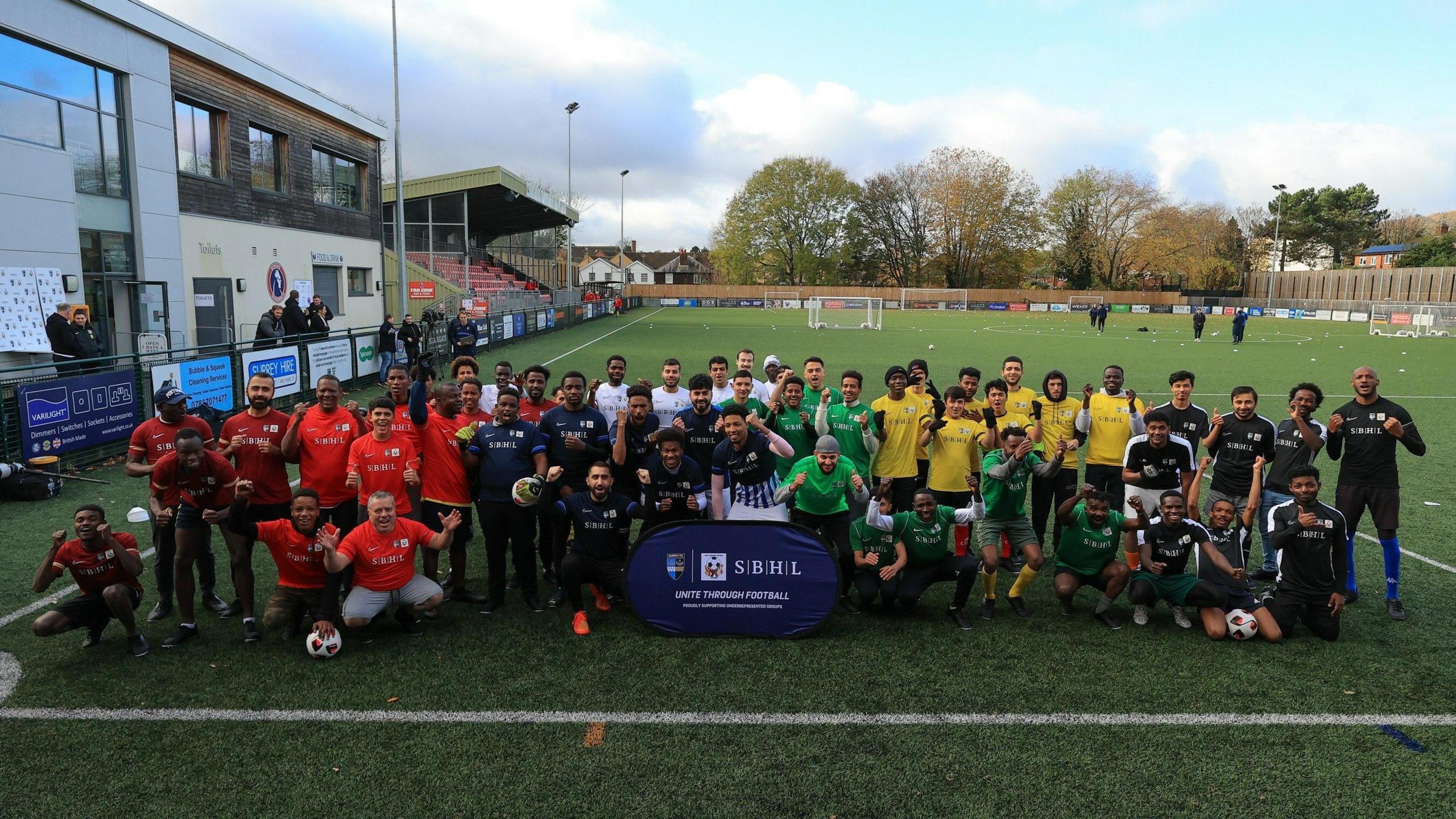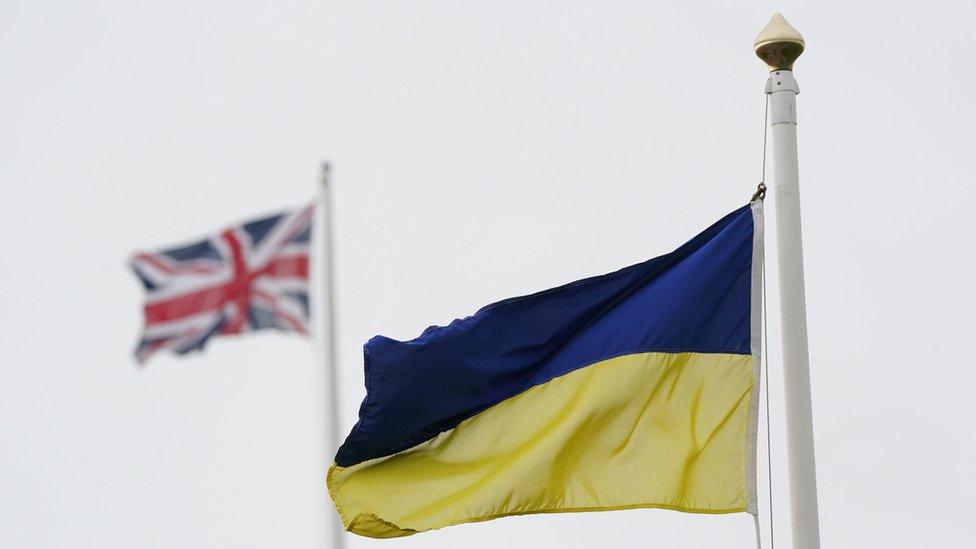Phone therapy aids refugee children, study shows

The study was conducted in Lebanon
- Published
Refugee children with mental health issues can benefit from telephone therapy, research by the University of Surrey has found.
It showed that support delivered over the phone caused a "strong and consistent" decline in mental health symptoms and had a far higher completion rate compared with in-person alternatives.
The study, led by Professor Michael Pluess, involved 20 Syrian refugees aged between eight and 17 in Lebanon's Beqa'a region.
"The number of forcibly displaced persons due to war and emergencies is rising and refugee children are often left with severe trauma," said Prof Pluess.
'Innovative solutions'
"We need innovative solutions to provide much-needed therapy in humanitarian settings."
He told the BBC the research could help make treatment more accessible since refugee populations often own mobile phones, despite facing "very limited" mental health care provision inside their host country.
Lebanon hosts the largest number of refugees per capita in the world, external, according to the UNHCR.
The Lebanese government estimates there are 1.5 million Syrian refugees inside the country.
The therapy, which was delivered in Arabic by local people given training, used the Common Elements Treatment Approach (CETA) - which Prof Pluess likened to cognitive behavioural therapy (CBT).
Johns Hopkins University in the US, the American University of Beirut in Lebanon and the Queen Mary University of London were also involved in the research.
The University of Surrey added in a statement that stigma around accessing mental health services and a lack of understanding about what treatment involves meant fewer people came forward for the study than anticipated.
Follow BBC Surrey on Facebook, external and on X, external. Send your story ideas to southeasttoday@bbc.co.uk, external or WhatsApp us on 08081 002250.
Related topics
See also
- Published14 October 2022

- Published20 November 2023

- Published23 February 2024
